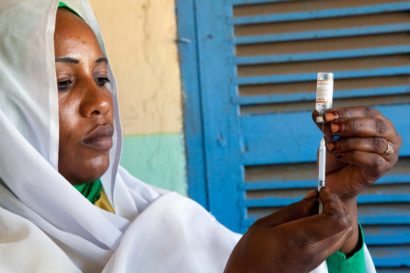Tag: Malaria
In this HEART Talk Dr. Peter MacPherson provides a brief overview of the challenges and potential solutions regarding tackling communicable diseases in developing countries. This presentation was delivered as part of a professional development training session for DFID health advisers in March 2018. Subject experts from the Liverpool School of Tropical Medicine (LSTM) presented the… Read more
The K4D professional development Reading Packs provide thought-provoking introductions by international experts and highlight the emerging issues and debates within them. They aim to help inform policies that are more resilient to the future. For any enquiries, please contact [email protected] The current malaria burden Great progress has been made in reducing the global burden of malaria… Read more
This report provides a review of key literature and evidence on the LLINs and private sector. The evidence base for this report is vast and spans more than twenty years of research evidence, policy documents and implementation programme evaluations and data from sub Saharan Africa and Asia. The relevant literature spans academic publications in biological… Read more
In this joint publication, UNICEF and WHO report that between 2000 and 2015, malaria mortality rates among children under age 5 fell by 65 per cent, saving an estimated 5.9 million lives. The report highlights the remarkable global and regional progress made against malaria, and the main challenges that remain in controlling and eliminating this disease,… Read more
The Health and Education Advice and Resource Team (HEART) was contracted to undertake the first Annual Programme Review (APR) of the DFID-funded Ghana Malaria Prevention, Diagnosis and Data Programme. This review was undertaken between 24 July and 20 August 2014 by a team of two external consultants. The Review Terms of Reference (TOR) posed questions… Read more
This paper explores the link between P. falciparum malaria– most malaria morbidity and mortality is due to the malignant Plasmodium falciparum -and primary education in terms of school performance on the macroeconomic level. Cross-country regression analysis shows that the relationship between school results (measured in terms of repetition and completion rates) and the P. falciparum… Read more
BACKGROUND: Malaria is a major cause of morbidity and mortality in early childhood, yet its consequences for health and education during the school-age years remain poorly understood. We examined the effect of intermittent preventive treatment (IPT) in reducing anaemia and improving classroom attention and educational achievement in semi-immune schoolchildren in an area of high perennial… Read more
In a cross-sectional study, carried out in January 1997 at the beginning of the school year, the impact of repeated attacks of malarial infection on the cognitive performance of children at school entry in moderate malaria-endemic areas of Sri Lanka was investigated. The cognitive performance of 325 schoolchildren in grade 1 (mostly aged 5-6 years)… Read more
A double-blind, placebo-controlled trial of nine months duration was carried out to investigate the impact of malaria and its prevention on the educational attainment of school children in a malaria-endemic area in southern Sri Lanka where both Plasmodium falciparum and P. vivax infections are prevalent. A total of 587 children attending grades 1-5 in four… Read more
Our earlier studies on Ugandan children surviving cerebral malaria showed cognitive deficits mainly in attention and memory. We now present the first study in sub-Saharan Africa to investigate the feasibility and potential benefits of computerized cognitive rehabilitation training on neuropsychological and behavioural functioning of children surviving cerebral malaria. A randomized trial in which 65 children… Read more
The UK provides financial support to the SUNMAP programme to support the management, coordination and delivery of malaria control services in six Nigerian States. It subsequently expanded to a further four States covering a total population of around 60 million. The support is through the provision of long and short term technical assistance for systems… Read more







